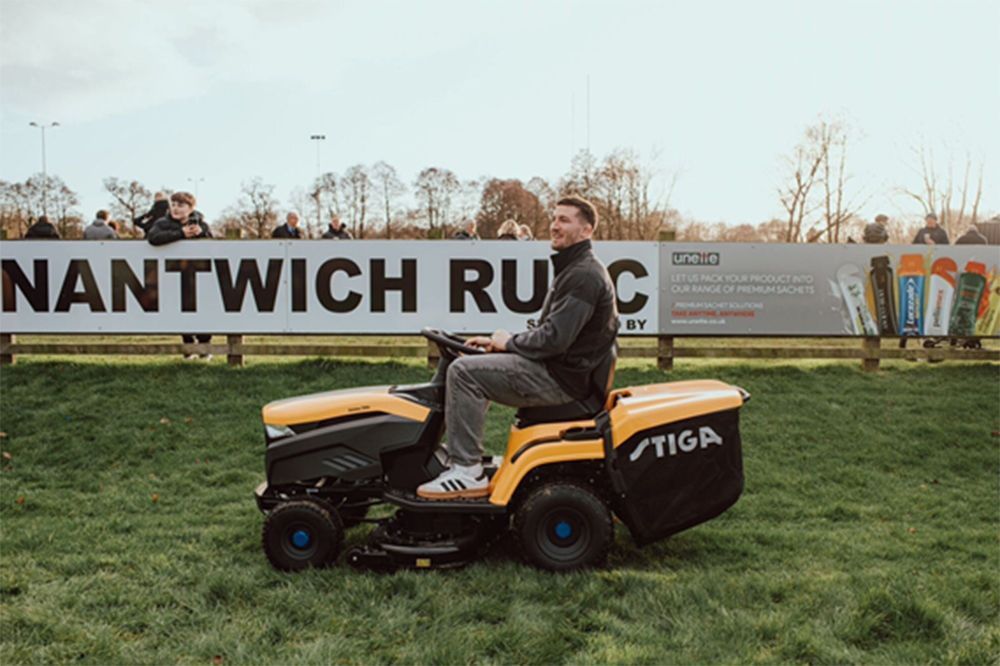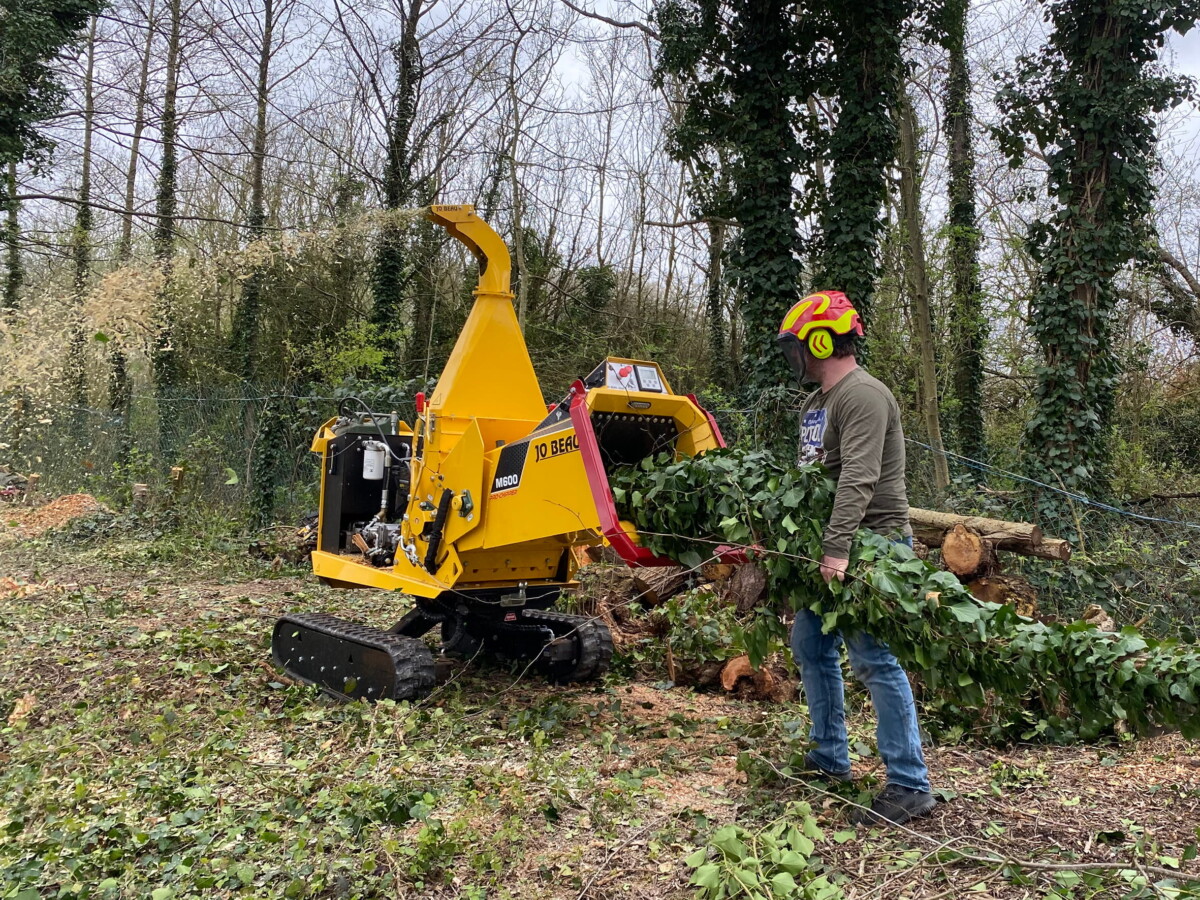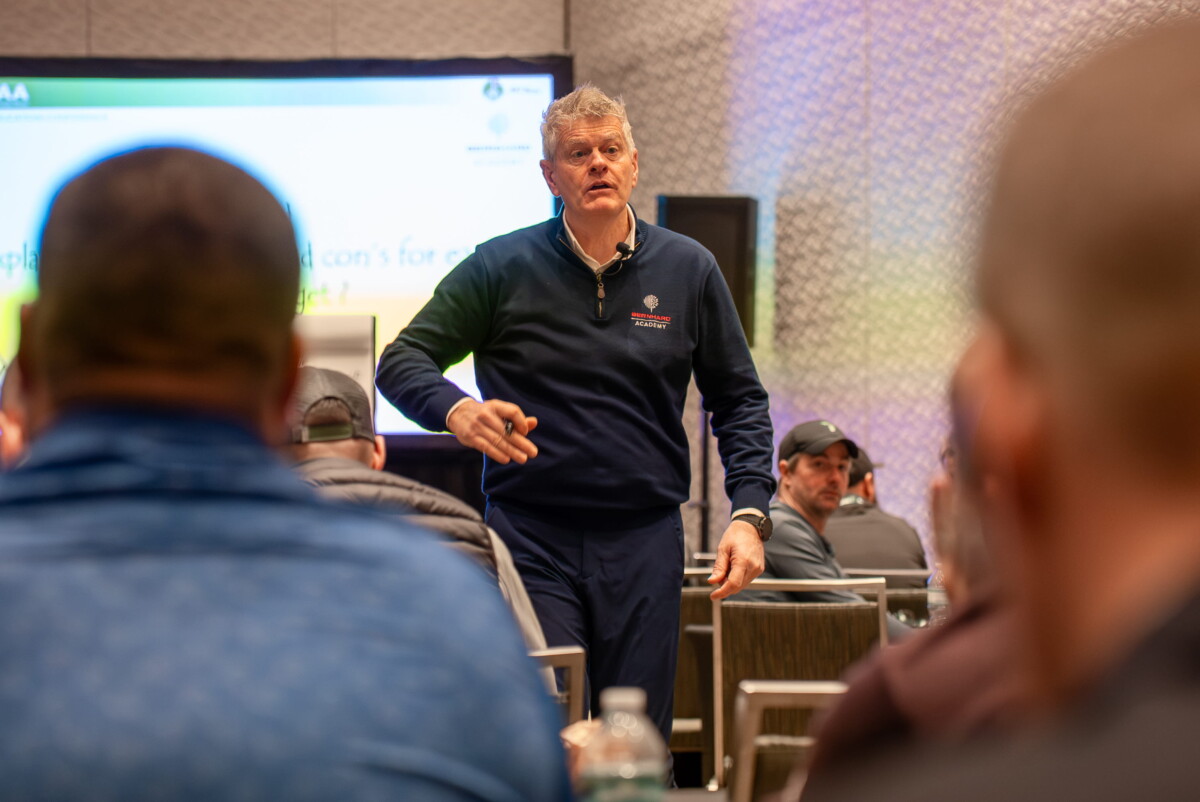Worm casts causing you a problem?: Earthworms are vital for maintaining healthy soil. By continuously moving soil, worms loosen and aerate it, aiding water infiltration. And, when earthworms feed on nutrients in the soil, the waste products they leave provide valuable fertilisation.
But despite the benefits, earthworms create big problems for greenkeepers.

Worm casts causing you a problem?
As they expel waste, earthworms leave small worm casts on the soil’s surface. These tiny mounds affect ball movement on golf courses and look unsightly. During milder months, worms are more active near the surface, and these soil casts can mount up, creating more work for greenkeepers.
Up until 2019, greenkeepers had a simple way to tackle worm casts. However, since Carbendazim was banned due to the potentially toxic effects it has on the human reproductive system, no clear chemical solution has emerged to replace it.
How Worm Casts Affect Cylinder Mowers
Worm casts are not just an inconvenience. As a greenkeeper, worm casts cause several other issues, particularly when using cylinder mowers.
Due to their wet, sticky nature, worm casts clog mower rollers, eventually causing them to lock up. When this happens, the mower skids over the turf causing costly damage to both the turf and the machine.
Additionally, worm casts cause an abrasive grinding paste to form between the bottom blade and cylinder. This blunts the cylinders so that regular and costly sharpening is required. If the sharpening is not completed the blunt cylinders affect the overall cut quality and presentation of the course. For many Greenkeepers, this means their cylinder mowers spend more time in the workshop than out on the course.
While strategies like delaying the cut until the middle of the day to reduce stickiness, brushing the turf prior to cutting, or using an older mower when cast levels are high can help, these are not practical solutions as they add time and expense to the ongoing task of turf maintenance.
Using a Trailed Rotary Mower
Until a solution is developed to control worm casts on turf, one time-saving way of tackling them is to use a rotary mower. Trailed rotary mowers do not encounter the same problems as cylinder mowers, as they have been engineered to perform in a wider range of conditions with unwavering reliability.
Most trailed rotary mowers have 5” diameter smooth rollers which are nearly three times larger than a cylinder mower, providing strength when it’s needed most. These rollers are fitted with scraper wires (either a thin metal wire hugging the roller or a solid steel bar running across the length of the roller) which provide constant pressure across the roller, for keeping it free of debris and worm casts.
Another advantage of a trailed rotary mower is their high spindle speeds and airflow, this helps keep the blades clean of worm casts, improving the cut quality and reducing maintenance costs. The other consideration is cleaning. This process is made much easier with a trailed machine as the decks can be folded vertically giving clear access and removing the need to crawl under or bend over the machine.
If you want to see how a trailed rotary mower will perform on your worm casts, give Trimax a call on 01933 652235 or visit their website https://trimaxmowers.co.uk/book-a-demo/
For the latest industry news visit turfmatters.co.uk/news
Get all of the big headlines, pictures, opinions and videos on stories that matter to you.
Follow us on Twitter and Instagram for fun, fresh and engaging content.
You can also find us on Facebook for more of your must-see news, features, videos and pictures from Turf Matters.


























